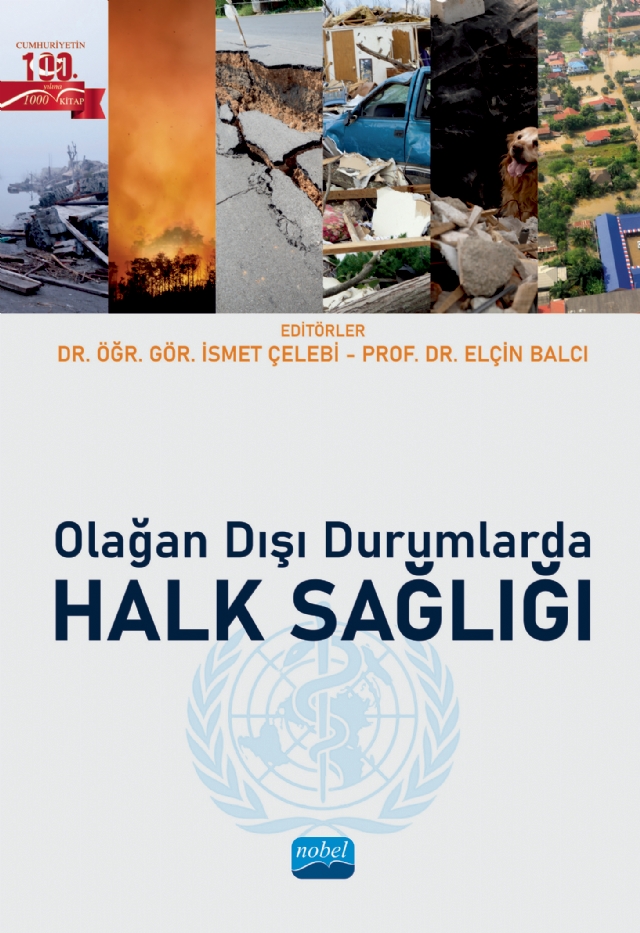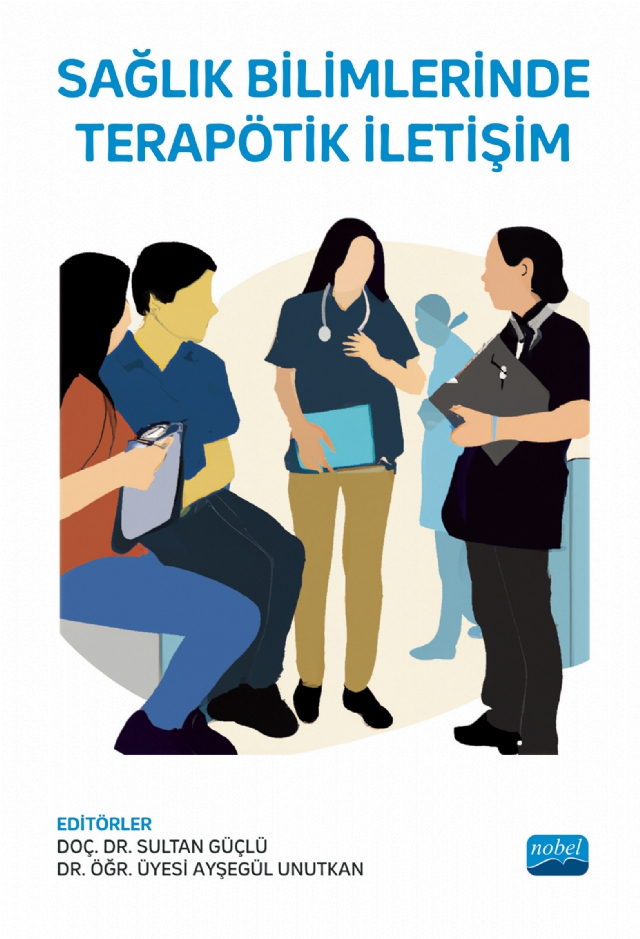Public Health Nursing \ 1-1

Our experience in terms of the fact that our country is a country with natural disaster hazards due to reasons such as its geological structure, topography and changing climatic conditions reveals that it is extremely important to train nurses who take an active role in this process on "disaster nursing".
In addition to providing a conceptual perspective on disasters, this book provides the opportunity to internalize all aspects of disaster nursing, including disaster preparedness, first response, disaster management in the field and in the hospital, disaster psychology, priority areas specific interventions, with case studies, brainstorming and question-answer activities.
This book, which is the first example of the field in terms of the writing technique it contains to be used in educational activities, is up-to-date and guiding in teaching undergraduate and graduate students, as well as nurses, who have the responsibility of advancing their profession, to make conscious decisions by using their critical thinking skills to help them gain the ability to prepare the society for disaster and manage the disaster process. is a resource.
We hope that this book, which includes all fields of disaster nursing and was written by field experts, will contribute to the disaster awareness and awareness studies in our country as well as nursing education.
In addition to providing a conceptual perspective on disasters, this book provides the opportunity to internalize all aspects of disaster nursing, including disaster preparedness, first response, disaster management in the field and in the hospital, disaster psychology, priority areas specific interventions, with case studies, brainstorming and question-answer activities.
This book, which is the first example of the field in terms of the writing technique it contains to be used in educational activities, is up-to-date and guiding in teaching undergraduate and graduate students, as well as nurses, who have the responsibility of advancing their profession, to make conscious decisions by using their critical thinking skills to help them gain the ability to prepare the society for disaster and manage the disaster process. is a resource.
We hope that this book, which includes all fields of disaster nursing and was written by field experts, will contribute to the disaster awareness and awareness studies in our country as well as nursing education.

Introduction to Nursing is designed for nursing students. The book is an important resource that will help students prepare for professional nursing by shedding light on both the history of nursing and the present.
Starting from the historical development of nursing, the book is a guiding guide that covers many topics such as basic concepts in nursing, nursing philosophy, values and beliefs, contemporary roles of nursing, theories and models, nurses' duties, authorities, responsibilities, and evidence-based practices.
Starting from the historical development of nursing, the book is a guiding guide that covers many topics such as basic concepts in nursing, nursing philosophy, values and beliefs, contemporary roles of nursing, theories and models, nurses' duties, authorities, responsibilities, and evidence-based practices.

Extraordinary Circumstances (ODD) cause loss of life and property by creating extraordinary results in daily life if preparation is not made. For this reason, it is vital to be prepared for ODDs both before and after. It is imperative to produce solutions with a multidisciplinary approach to developing and dynamic ODDs. For this reason, a systematic approach is important before, during and after ODDs from a Public Health Specialist perspective. The leading ODDs that remain up to date in Türkiye are refugees and migrants who are victims of floods, earthquakes and wars in our country due to our geographical location. In addition to these, many natural and human-induced ODDs such as landslides, transportation accidents and fires are experienced. There is also an absolute need for adequate knowledge for successful intervention in ODDs. Our insufficient level of theoretical knowledge makes things difficult in the already complex disaster area, and even drags the whole operation into chaos.

In recent years, "complementary medicine practices" and studies in this field have been increasing rapidly in our country as in the world.
Our colleagues who provide services in the field of health and are responsible for care have very important responsibilities. Our colleagues are expected to use scientific evidence, follow up-to-date information, and convey the results of their work to care.
Our colleagues, who are aware of these responsibilities, carry out studies in many fields, especially in complementary medicine applications, in order to obtain new evidence and contribute to the development of databases of their professions.
However, the legal regulations on complementary medicine practices cause us to have difficulties in permitting the studies we will do in this field. We wanted to create this book in order to draw attention to the work of our colleagues on complementary medicine practices, whose place and importance in the field of health are well known, and to shed light on what they will do.
Hope it will be useful to your readers and the literature…
Our colleagues who provide services in the field of health and are responsible for care have very important responsibilities. Our colleagues are expected to use scientific evidence, follow up-to-date information, and convey the results of their work to care.
Our colleagues, who are aware of these responsibilities, carry out studies in many fields, especially in complementary medicine applications, in order to obtain new evidence and contribute to the development of databases of their professions.
However, the legal regulations on complementary medicine practices cause us to have difficulties in permitting the studies we will do in this field. We wanted to create this book in order to draw attention to the work of our colleagues on complementary medicine practices, whose place and importance in the field of health are well known, and to shed light on what they will do.
Hope it will be useful to your readers and the literature…

Communication is an indispensable part of life, which is at the heart of any human relationship. Every individual deserves to be treated with dignity and respect. Based on this fact, therapeutic communication is an effective and empathetic communication method, where personal space, privacy, confidentiality and trust are provided, information meets compassion, which can be used to increase the delivery/quality of health services and to increase patient/client satisfaction. Health professionals should know how to communicate with patients/clients and their relatives while evaluating patients/clients; It is very important for the individuals with whom they communicate to realize that they are also human beings with their own values and feelings. This book will be a guide for healthcare professionals and students, who are future healthcare professionals, to develop their therapeutic communication skills by approaching their patients/clients with a holistic perspective.